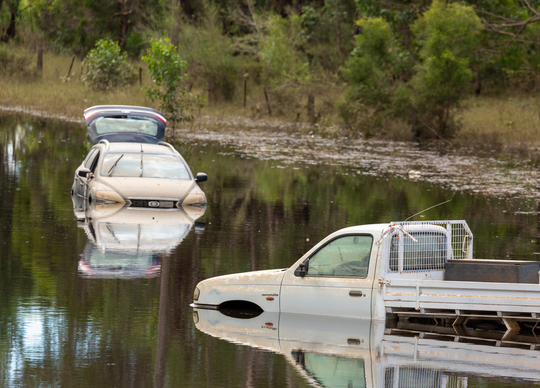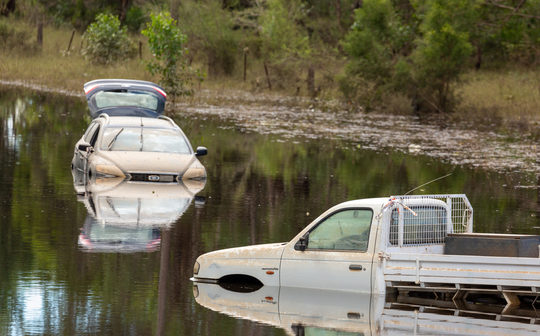
Record-breaking east coast flooding has again demonstrated that Australia lacks effective disaster response leadership in Canberra, with too much reliance on the Australian Defence Force to do the heavy lifting, according to the Australian Security Leaders Climate Group (ASLCG).
Speaking on behalf of the ASLCG, former ADF chief Admiral Chris Barrie (Retd) said: “Escalating reliance on the ADF in response to worsening emergencies is no substitute for nationally coordinated civilian-led rapid response infrastructure.
“And expanding or calling in the ADF over and over again is no substitute for evidence-based climate policy, which requires rapid decarbonisation. This is not a military problem, it requires a whole of government, whole-of-nation response.”
The 2019-20 Black Summer bushfires compelled the second-largest peacetime mobilisation (after Covid) of the Australian Defence Force, including Reserves, which is now increasingly being used to undertake climate-related humanitarian and disaster relief.
Adm. Barrie said that relying on the ADF to pick up the pieces in the face of accelerating climate impacts was not sustainable, and higher levels of warming will stretch them beyond their capacity to respond: “Already Australia is doing more disaster relief in the Pacific, and one of our two specialist Navy ships has been out of operation. If we get multiple disasters in the Pacific needing an Australian response at the same time, we would be caught short-handed.”
Adm. Barrie said the ADF was not necessarily the best, specialist, cost-effective emergency response option within Australia, and any commitment to a new national resilience response is empty without policy, programmes and adequate funding.
Adm. Barrie said: “Right now our Defence Force and other services are flying blind when it comes to planning for the future because Australian governments had never properly assessed the climate risks, so there is no solid basis on which to build an effective emergency response and recovery platform.
“Australia has repeatedly ignored the risks and is ill-prepared for the security implications of devastating climate impacts at home and in the Asia-Pacific, the highest-risk region in the world.”
Adm. Barrie emphasised the ASLCG’s call, in its September 2021 report, for the government to carry out a National Climate and Security Risk Assessment as a matter of urgency: “Some of our key allies have already undertaken this critical work, yet Australia’s political leadership in this area has been ‘missing in action’. An Australian assessment has never been done. As a result we are flying blind, and the outcome is disastrous.”






